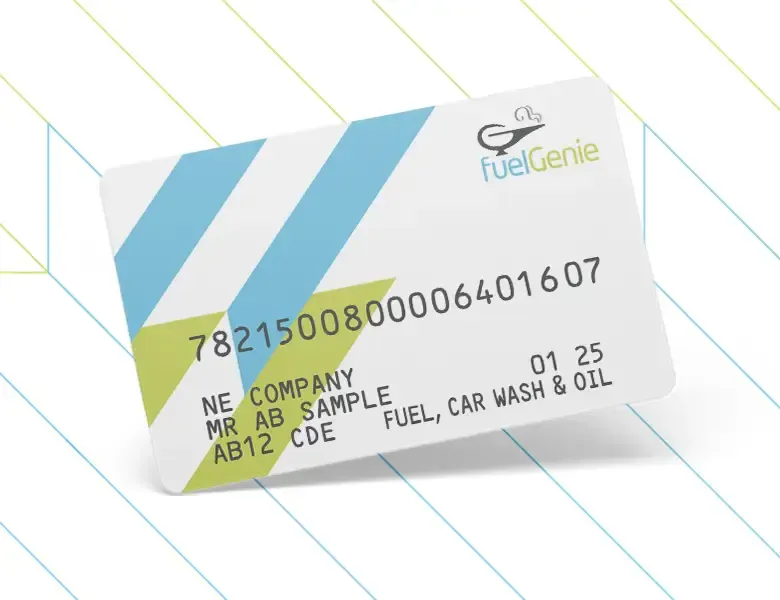
Simplify your mileage tracking
With fuel being one of the biggest expenses facing most businesses, it's essential to cope with fluctuating prices at the pumps by tracking your drivers' mileage as accurately as possible.
Monitoring where the diesel and petrol is going allows successful firms to spend more money on growing their operation as well as keeping them compliant and ensuring they are sustainably run.
Using the right tools alongside good processes, training, regular logging and analysis of the business mileage data keeps things consistent. And greater visibility of the monthly and annual fuel spend will make working out expense reports, tax deductions and reimbursements far easier.
Understanding the basics
Accurate mileage tracking means greater visibility of vehicle costs which helps businesses make better choices about vehicle usage. Whether companies keep track manually or use automatic tools, it's good to know the benefits.
Having precise mileage records improves fuel consumption and makes the money go further. Fleet managers can also see which vehicles are using too much fuel due to poor route planning or bad driving habits, allowing them to change routes, offer training or set up vehicle maintenance plans.
In the longer term, being able to track mileage makes businesses better at using data to lower fuel costs, reduce breakdowns, avoid sudden costly repairs, improve safety and cut downtime, all of which is good for business.
What will you need to get started?
Before you start tracking your mileage, make sure you have the right tools and resources to make it easy and accurate. Having what you need helps you keep track smoothly, so whether it's a notebook or GPS mileage tracking app, picking the right tools matters.
It could be a special notebook for manual logging or a GPS mileage tracking app, but knowing what you need and picking the right tools for the job will help you maintain reliable and fully compliant records.
A mobile app linked to a phone GPS system to automatically record mileage means there's no need to enter information manually with the potential for human error. They keep detailed logs of trips such as date, time, distance and route taken to help you stay accurate. And as the data grows, they offer insights into how your fleet is working.
Keeping fuel receipts is one way to support your business mileage claims, especially when you want to deduct actual expenses on your taxes. But an automated system with dashboard support will do that more quickly and accurately, saving your team's time.
Your step-by-step guide to tracking mileage more accurately
Choose the right system
The starting point should be choosing the best method for your business and then creating a routine for logging or analysing your miles. Each step is important for keeping clear records and getting the right information from them for the end of year accounts.
It's important to think about several things when picking the right system. Easy to understand and use systems are more likely to be welcomed and adopted – the less a driver has to do, the more information firms have to work with.
Features such as automatic tracking trip classification will help the finance department drill down into your fleet's activity and make it easier to generate reports. It's also wise to check the different pricing plans and pick one that matches your budget.
Get your recording right
Once your tracking system is in place, it's important to keep everything accurate and ensure you don’t miss any important data. Consistency is key here.
If you decide to log it manually, you need to have a notebook or a spreadsheet. Write down every detail of your drivers' trips from the date and where they started to where they went, the reason for the trip and how far they travelled. If you decide to use a mileage tracker app, remember to start it when your business trip begins and stop it at the end to make sure the app gets the correct distance for work purposes.
Embrace technology
The digital age has brought us helpful tools that can change how we track our mileage. Many of them are linked to business fuel cards that have additional features to help your drivers find the cheapest fuel on the best routes and link seamlessly to a dashboard for analysis.
This type of real time automation reduces admin and ensures accurate business mileage tracking with minimal manual input. Its ease of use, heightened accuracy and comprehensive reporting aligned to accounting software make it increasingly popular.

Train your team
If your business prefers the traditional approach, you'll need to ensure your drivers report the correct mileage data from their tracking system regularly or the process will not be as effective. Consistency is everything when recording trip details, so training is essential to spread the message about the need for accurate fuel tracking.
Review the data regularly
This helps you keep it accurate, so take time to go over your mileage logs for any mistakes or missing information. Carefully compare your trips with calendar entries, meeting invites or fuel receipts and fix any errors you find right away to ensure the mileage claims are accurate for tax purpose peace of mind.
The result, whether your business gets there via a spreadsheet, fuel card, GPS tracking or a mix of them all, will be greater operational efficiency on where the fuel is going and a better perspective on monthly cashflow.

